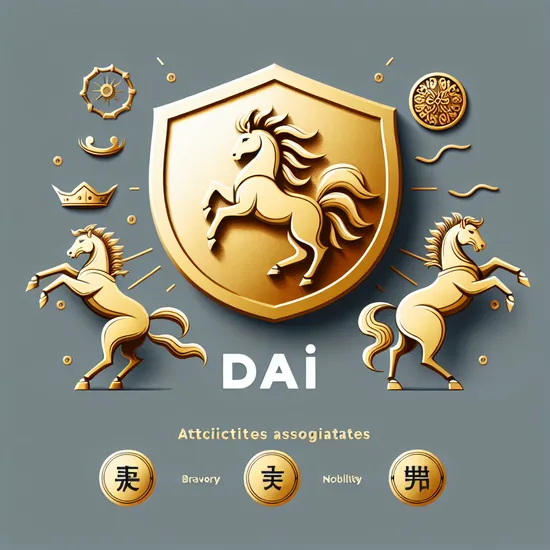Dai - Understanding Its Meaning, Origin, Popularity and Similar Names
Meaning of Dai
The name Dai carries with it a sense of uniqueness. Common meanings associated with the name are brave and great. It reflects an aura of strength and valor. Dai is often chosen for its timeless appeal, symbolizing both courage and nobility. In various languages and cultures, these interpretations endure, providing a universal allure and contributing to its persistent popularity across the globe.
Find more names related to the name Dai.
Brave,
Great,
Noble,
Welsh,
Japanese,
Pronunciation of Dai in Welsh
/daɪ/ - Dai
- /d/: as in 'day'
- /aɪ/: as in 'eye'
The name Dai is pronounced as 'die', much like the English word for 'death', but without the grim association.
Origin of Dai
The name Dai originates from the Welsh and Japanese cultures. In Welsh tradition, it is a diminutive form of Dafydd, meaning David, while in Japan, it means great or large. The simultaneous presence of the name in these distinct regions highlights its versatile nature and the diverse cultural backgrounds from which it originates, making it a name with rich, multifaceted connotations.
Gender Neutrality of Dai
The name Dai is broadly considered gender-neutral, making it a choice for both males and females. In Japan and Wales, it's frequently used for boys, while many parents globally choose it for daughters due to its strong meanings. This versatility shows how cultural perceptions adjust, with notable individuals of both genders, such as Japanese novelist Dai Sijie and Welsh musician Dai Jones, bearing the name.
Popularity of Dai
The name Dai has seen varying degrees of popularity throughout the years. It remains a common choice in countries like Wales and Japan. Despite fluctuations, its unique sound and powerful meanings have contributed to its consistent appeal. In recent years, there has been a resurgence in interest, with parents drawn to its cultural significance and amiable phonetics.
Global Usage of Dai
The name Dai is recognized in several cultures, including Japan and Wales. Variations in pronunciation may occur, but its profound meanings of 'great' and 'brave' remain consistent. In China, it also serves as a common last name. Its encompassing nature makes it a beloved name across different regions, resonating with a broad audience worldwide.
| Global Distribution and Gender Ratio of the Name Dai |
| Country |
Usage % |
Female % |
Male % |
| BR |
29.51% |
94.94% |
5.06% |
| JP |
22.5% |
1.02% |
98.98% |
| US |
8.96% |
43.59% |
56.41% |
| TH |
4.82% |
45.24% |
54.76% |
| CN |
3.44% |
26.67% |
73.33% |
Gender and popularity data per country is sourced from
Gender API.
Characteristics Associated with Dai
- Bravery: Individuals with the name Dai often exhibit courage and boldness.
- Nobility: Associated with high moral principles and ideals.
- Intellect: Noteworthy for their intelligence and quick thinking.
- Charisma: command a certain charm and appeal.
Career Paths for Dai
- Leadership: Drawn to managerial and decision-making roles.
- Creative Arts: Likely to excel in fields like writing and design.
- Science and Technology: Affinity for analytical and technical careers.
- Social Services: Inclined towards helping roles like counseling or teaching.
Interesting Traits about Dai
- Linguistic Intrigue: Found in both Welsh and Japanese naming conventions.
- Cultural References: Appears in literature and film due to its exotic yet universal flavor.
- Historic Figures: Includes poets and political figures bearing this name.
Famous People Named Dai
- Dai Sijie: Renowned Chinese-French novelist and filmmaker.
- Dai Vernon: Famous Canadian magician also known as 'The Professor.'
- Dai Greene: Accomplished Welsh hurdler and world champion.
Similar Names
-
Tai: Tai is often associated with meanings like great or elevated.
-
Kai: Kai can signify sea or ocean.
-
Mai: Mai holds meanings of brightness and flower.
-
Rai: Rai often means lightning or trust.
-
Fai: The name Fai can translate to faith or trust.
-
Sai: Sai can mean blessing or talent.
-
Lai: Lai is connected with laughter and joy.
-
Jai: Jai is often interpreted as victory or triumph.
-
Khai: Khai can mean strong or immortal.
-
Zai: Zai signifies invincible or conqueror.
